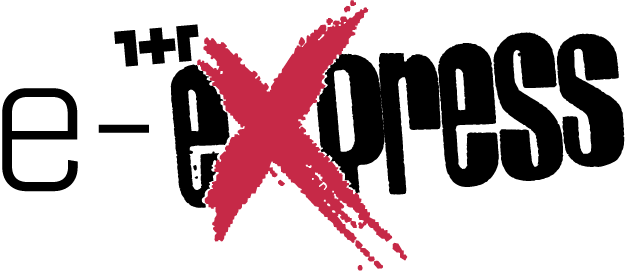In this three-part series on populism –a major issue in current political thinking and debates across the world– the departure point is the historicity of two related concepts: “the people” and populism.

The democrats concede that a privileged class confronts them, but they, along with all the rest of the nation, form the people. What they represent is the people’s rights; what interests them is the people’s interests. Accordingly, when a struggle is impending they do not need to examine the interests and positions of the different classes.
Marx, The 18th Brumaire of Louis Bonaparte.
It is a good (and time-saving) idea for an(y) intelligible argument on populism, to start with a variation on the famous/notorious Lacanian dictum, “Le [peuple] n’existe pas”: [1] There is no such thing as “the People”.
Indeed, you do not need to be a Lacanian to proclaim this. In the first (and only) session of the Russian Constituent Assembly in January 1918, Bolshevik deputy Ivan Skvortsov-Stepanov exclaims (in a speech that he claims to be pre-approved by Lenin) that:
How can you […] appeal to such a concept as the will of the whole people? For a Marxist ‘the people’ is an inconceivable notion: the people does not act as a single unit. The people as a unit is a mere fiction, and this fiction is needed by the ruling classes. [2]
With the eventual rise of Stalinism in the USSR, however, this Marxist idea that ‘“the people” is an inconceivable notion,’ was shelved forever. So much so that, even with the demise of the Stalinist brand of ‘socialism’, then with the demise of ‘socialism’ altogether, and finally with the rise of Putinism in post-Soviet Russia, the idea that the Father (‘of nations’, as Stalin was called) is the sole representative of ‘the people’ is still going strong.
In order to be able to represent something, something whose will is ethically, politically and socio-culturally incontestable, you first have to invent it. Only by doing so your own will also becomes incontestable. In order to attain absolute power, you must first create a ‘subject’ which incontrovertibly deserves this power, be very careful that this virtual subject does not exist in actuality (lest it may claim this power for itself), and then wait for the opportune moment when you can proclaim with pomp and fanfare that you represent it. Thankfully (for those who yearn for such power), such moments in history are not too rare to be underestimated.
In order to be able to make my definition more comprehensive and comprehensible, however, I have to start at the root, by defining ‘the People’. I commenced with the axiomatic assumption that the People as such did not exist, i.e., it is a discursive construct. It is made up of diverse social classes, genders and sexual orientations, races, cultures, etc., many of them not compatible with each other.
Historicity of ‘The People’
Let me start with a tentative attempt at definition and try to expand my argument from that preliminary hypothesis:
- Populism is the coincidence [Zusammenfallen] and intersection of all ideologies built on the axiom that ‘the People’ is an actually existing agency in and of itself, as one of the poles of the dimorphism, ‘the people/the elite’ (Mudde & Rovira Kaltwasser 2017) [3]; and all political movements and self-styled ‘leaders’ that claim to represent (through elections, plebiscites, referenda or otherwise) such agency, without being a part of ‘the corrupt establishment’ themselves. (Hawkins, Rovira Kaltwasser & Andreadis 2018) [4]
- Populism, therefore, subjectivises populations as ‘the People’ in both senses of the term: it makes them into subjects, supposed agents with a will of their own, and at the same time makes them subject to, and eventually subjects of, political entities vying for domination on the presumption that they represent them.
- Lastly, since no universalised concept can be created in a vacuum, Populism has to invent an adversary, (other than the ‘elite’, the demarcation line between which and the Populists is always blurred and indefinite), internal or external, an antagonist against which the Populists can declare themselves protagonists. This adversary can be other nations, a neighbouring country or ‘imperialism’ in general, and their ‘internal collaborators’. More significantly for contemporary Populism, it can be ‘the immigrants’, both as an external (e.g., Trump’s ‘Caravan’) or an internal (e.g. many asylum-seekers, refugees and/or former Gastarbeiter in European countries) threat. The Populist insistence on xenophobia and anti-immigration policies arises from the fact that in order to give the impression to exist, the ‘People’ needs a social stratum lower than itself, another subject that is supposed to be subject to its will.
In order to be able to make my definition more comprehensive and comprehensible, however, I have to start at the root, by defining ‘the People’. I commenced with the axiomatic assumption that the People as such did not exist, i.e., it is a discursive construct. It is made up of diverse social classes, genders and sexual orientations, races, cultures, etc., many of them not compatible with each other. Moreover, even leaving aside this synchronic incompatibility, the ‘People’ is also not the same thing throughout history, or even within the same historical period. Legal scholar David A. Strauss argues, in trying to demonstrate that the ‘We, the People’ of the US Constitution is just an illusion, not only synchronically, but also diachronically, that ‘even assuming the text [of the Constitution] was the work of the people at some point, those people (leaving aside the most recent amendments) have not been around for a while.’ (Strauss 2013, 1969)
This, however, was not always so; that is to say, my assumption is itself historical and transitory: every discursive construct rests upon some kind of historical (or, depending on the context, biological), observable phenomena and advances by deconxtualising, that is, displacing and anachronising them. Insofar as the Classical Greek demos meant ‘the people’, for instance (which is not an exact translation, but we may let it pass for the moment), it was something tangible and definable at one point in history. It meant anybody who was not a slave, an artisan or a metoikos (foreign resident, immigrant) and of course, not a woman. So, even at the height of Athenian democracy, the demos consisted of only less than a fifth of the population.[5] Taken as a whole, we have a historically and sociologically definable entity in the demos, and it is safe to say that this demos, indeed, did exist, which means, of course, it was never identical with itself throughout history, even throughout the ‘democratic moment’ in Ancient Greek history. The same thing should be true, mutatis mutandis, with the Roman populus during the Roman Republic.
When the term ‘the People’, which was put to deep sleep between the fall of the Roman Republic and the English ‘Glorious Revolution’ of 1688, was resuscitated, it was neither the Greek demos nor the Roman populus anymore, but rather ‘the commons’, much closer to the Eastern Avam, as is obvious even in the name of the political body that purported to represent it, the House of Commons.
There is, however, no corresponding entity in the East during the same time frame: the mass of peasants and artisans, the subjects of the Huangdi, the Pharaoh, the Tsar or the Sultan did not constitute a ‘People’ in the Greek (demos) or Latin (populus) sense of the word: they were, rather, one pole of the binary Avam (the commons)/Havass (the elite) in Arabic. The so-called elite in this case still consisted of the subjects of the Huangdi, the Pharaoh, the Tsar or the Sultan, albeit in a privileged position: they were the soldiers (of rank and file), jurists or the bureaucracy, and although they were involved in actual decision- and law-making processes from time to time (mostly during coups d’etat, which were plenty), they did not have a firm and protected legal status in these processes.
The Greco-Roman ‘Peoples’ had slaves, immigrants and artisans beneath them; Eastern Avam did not, since there was no slavery in production in Eastern civilisations. This is why many European historians and philosophers mistook the peasants and indentured workers of Eastern civilisations for slaves for centuries.[6] Being the bottom echelon (and the overwhelming majority) of society, the Eastern Avam is much closer to the modern conception of ‘the People’, at least to the one consistently utilised by ideologues of ‘populism’. They had the same legal status vis-à-vis the absolute ruler as the ‘elite’, the soldiers, administrators or jurists, although the latter had quite a bit more of actual power in hand, and the Avam endeavoured to strike a balance by going over the top of the elite’s head and unreservedly identifying with (and appealing to) the absolute ruler, or, in Karl Wittfogel’s terms, the Oriental Despot (Wittfogel 1957). This created a constant state of victimhood in the East, an endless stream of petitioners, appellants, implorers and supplicants, ‘victims’ of wrongdoing mostly by the elite, who struggled to bring their cases directly to the absolute ruler, trying to bypass the bureaucracy with the help of a sizeable group of people who made a living by acting (or sometimes only pretending to act) as in-betweens and mediators. Even with the severely limited historical data on Asian Civilisations in his time, Marx clearly saw that the relationship between the Oriental Despot and his kuls (clients, bondsmen) was one of representation:
Furthermore, the communality within the tribal body may tend to appear either as a representation of its unity through the head of the tribal kinship group, or as a relationship between the heads of families. Hence, either a more despotic or a more democratic form of the community. The communal conditions for real appropriation through labor, such as irrigation systems (very important among the Asian peoples), means of communication, etc., will then appear as the work of the higher unity—the despotic government which is poised above the lesser communities. (Marx 1964, 70-71, my italics)
When the term ‘the People’, which was put to deep sleep between the fall of the Roman Republic and the English ‘Glorious Revolution’ of 1688, was resuscitated, it was neither the Greek demos nor the Roman populus anymore, but rather ‘the commons’, much closer to the Eastern Avam, as is obvious even in the name of the political body that purported to represent it, the House of Commons. The actual term, however, taken over from the Latin root and made popular first by the US Constitution a century later (‘We, the People…’), was closer again to the Latin populus than the British ‘commons’, since like that term, it was predicated over a yet lower echelon of society, the slaves (and, we should never forget, the women). In 1776, the slaves translocated from Africa (and survived the Atlantic crossing) made up about 20% of the population of the thirteen states whose ‘People’ proudly declared their independence from the British crown.

During the French Revolution, Le tiers-état was the seminal expression of the uprising, first made public in the pamphlet of the same name by Emmanuel Joseph Sieyès, denoting anybody who didn’t belong to either the clergy or the aristocracy. Tiers-état came to be synonymous with Le peuple in Revolutionary France, and was imported to Britain as The People through Romantic apotheosis. The Germans resisted the Romanisation as usual and kept their das Volk. By late19th century, entire Europe, with the exception of some die-hard communists and socialists who insisted on talking about social classes, had accepted the existence of this mysterious actor, ‘the People’, which nobody seemed to be able to define exactly. This difficulty in definition, according to Wallerstein, was largely due to the fact that bestowing ‘peoplehood’ on a group of people also meant to grant them certain political rights, which was not always convenient for the ruling classes:
Of course, if we were ready simply to define the “people” as truly everyone, there would be no problem. But the “people” as a political concept is primarily used to refer to rights within a state, and thereupon it becomes contentious. What is obvious is that virtually no one was, or is, prepared to say that the “people” is everyone, that is, that truly everyone should have full political rights. There are some widely agreed-upon exclusions: not children, not the insane, not criminals, not foreign visitors — all these exceptions being considered more or less obvious to almost everyone. But then to add to this list other categories of exceptions —not migrants, not the propertyless, not the poor, not the ignorant, not women— seemed to many just as obvious, especially to those who were not themselves migrants, propertyless, poor, ignorant, or women. Who the “people” are constitutes to this day a continuing and major source of political controversy, everywhere. (Wallerstein 1999, 91-92)
A partial solution to this problem already existed in the language of the French Revolution: The Revolution did not only (re)invent the term Le peuple (e.g. Marat’s L’ami du peuple [Friend of the People]), it also put into public use the appellation, Citoyens! ‘Citizen’, as a form of address, was the trademark of the Revolution, bypassing all honorifics and inherited titles, and equalising everybody vis-à-vis state and law, and, as such, was quite specific and definable. The same Marat who was extremely fond of using the universalising (and therefore confusing) term Le peuple, was not as ambiguous when defending the rights of specific groups of citizens (e.g., Protestants, Jews and Actors) to be elected to political assemblies.[7]
A partial solution existed in the language of the French Revolution: The Revolution did not only (re)invent the term Le peuple (e.g. Marat’s L’ami du peuple [Friend of the People]), it also put into public use the appellation, Citoyens! ‘Citizen’, as a form of address, was the trademark of the Revolution, bypassing all honorifics and inherited titles, and equalising everybody vis-à-vis state and law.
After two hundred and thirty years, the question ‘Of what does the citizenry consist?’ is still alive and well, even after various consensuses about former slaves, Jewish people, people of colour and diverse ethnicities, and, of course, women, have been reached: now we cannot agree upon the status of immigrants, upon the question ‘Who is an immigrant?’ or even upon the minute differences between immigrants, émigrés, refugees and asylum-seekers. It is not surprising, therefore, that the question of ‘immigrants’ would occupy centre-stage when trying to understand the phenomenon we call ‘populism’, especially its ‘right-wing’ brand.
In most of Europe ‘the People’ (le peuple, das Volk, el pueblo, il poppolo) was being used as a synonym of the entirety of citizenry by mid-19th century, and in a couple of decades, after the American Civil War, with the legal abolition of slavery, the American version came to mean the same thing. It didn’t mean that the controversy around citizenry was resolved; quite to the contrary, it would go on until women obtained full citizen’s rights (Switzerland, 1971, although technically it was Lichtenstein, 1984), and although slavery was abolished in the US after the Civil War, African-Americans’ right to an equal vote was constantly under threat until as late as 1964, when the 24th Amendment to the Constitution was passed.
It is no coincidence that the prevalence of the use of the term ‘the People’ in Europe and in the Americas coincides almost seamlessly with the use of the term ‘the Nation’, and its inevitable consequence, Nationalism.[8] ‘The Nation’ appears a bit later than ‘the People’ in North America, but not by much,[9] probably because it was slightly harder in the multi-ethnic, multi-cultural and multi-religious America to ‘imagine’ a nation. In any case however, when we entered the 19th century, we had three terms, ‘the People’, ‘the Nation’ and ‘Citizenry’, used almost interchangeably, throughout the ‘Civilised World’ (i.e. Europe and North America’), and by the end of that century, the rest of the world was made (sometimes forcibly) ready for the introduction of these concepts by the rapid advent and expansion of capitalism, usually disguised as ‘modernisation’.
When we entered the 19th century, we had three terms, ‘the People’, ‘the Nation’ and ‘Citizenry’, used almost interchangeably, throughout the ‘Civilised World’ (i.e. Europe and North America’), and by the end of that century, the rest of the world was made (sometimes forcibly) ready for the introduction of these concepts by the rapid advent and expansion of capitalism, usually disguised as ‘modernisation’.
It would be wrong, however, to presume that as capitalism expanded, it one-sidedly imposed its portfolio of concepts without resistance and/or alteration onto lands not yet (or, left to themselves, would not probably be) ‘modernised’. To the contrary, there was a lot of resistance, and although this resistance proved to be ultimately futile, there was an irresistible pressure for reaction and interaction, modifying, along with many structural and conceptual ‘essentials’ of capitalism, these three concepts as well. As a result, when, during the first half of the 20th century, a significant portion of the (rest of the) world was ‘modernised’ (i.e. became integrated into expanding system of capitalism), these concepts too were altered, modified and reimagined to fit the new reality of the ‘modern’ World-System[10] of diverse lands conjoining under a single mode of production but rooted in entirely different and sometimes intransigent social, economic and cultural (and also psychological and political) pasts.
For the purposes of the present article, the most significant ‘acquisition’ from Asiatic and African civilisations that is assimilated into the concept of ‘the People’ (and hence modified it to a significant degree), is the concept of Victimhood, and its transformation into a Victim Identity as a result of its encounter with capitalism.

Historicity of ‘Populism’
Nadia Urbinati defines populism as
[…] a phenomenon that is parasitical on (because internal to) representative democracy, which is its true and radical target. This rivalry, I argue, does not necessarily produce more democratic politics, although this is populism’s claim. As for its phenomenology, populism is a certain political style or set of rhetorical tropes and figures, yet is more than that because it seeks also state power to implement a political agenda whose main and recognizable character is hostility against liberalism and the principles of constitutional democracy, in particular minority rights, division of powers, and party pluralism. (Urbinati 2013, 137)
It is not surprising, therefore, to see populism (or something akin to it) emerging wherever and whenever some kind of representative democracy is in effect for some time. Accordingly, when we look at the History of the Peloponnesian War by Thucydides (Thucydides & Finley 1954), we find two proto-populist public figures (Pericles and Cleon) as early as the 5th century BC, at clashes with each other, both demagogues and public-pleasers, one an aristocrat and soldier-by-profession, the other a businessman-turned-statesman.
According to Thucydides, a sworn enemy of Cleon and an ardent fan of Pericles, the former was a bully, a liar and a violent man who twisted every fact in his uncontrolled quest for power. American news media was quick to get hold of the obvious similarity between him and Trump and had moderate fun for a while.[11] The Cleon-Trump comparison is understandable (and yes, there is a definite similarity!), but it is also an anachronism, and like every anachronism, it may make us forgo our facts if we are overly insistent on it: we may, for instance, mistake Thucydides (a fan of Pericles) as an ‘objective source’ and overlook the fact that Pericles, although more soft-handed, was as much of a demagogue and bully himself, making him another proto-populist.
I am by no means ascribing trans-historicity to populism: it is a specific ideological/political experience, peculiar to the second half of the 20th century and onwards, and has structural and causal ties to neoliberalism. Marx had argued against anachronising Bonapartism and categorising it under ‘Caesarism’. Thalheimer and Trotsky did the same thing and tried to differentiate Fascism from Bonapartism.
Athenian democracy at its height had these two ‘parasites’, who used the popular support they gain through demagoguery to play the various clusters of power within the ruling class one against the other, eventually achieving absolute power one after the other. From there, there is only one more step towards (dreams of) empire, which inevitably leads to war and destruction: Pericles escapes this fate by falling victim to the plague at an earlier date. Cleon himself, a wannabe ‘general’ (strategos) with no military training, becomes the ‘Commander-in-Chief’ and is killed (along with his Spartan counterpart) in the battle of Amphipolis. Ironically, two centuries later Amphipolis will be the place Alexander of Macedonia will prepare his army for his Eastern conquests, this time for a real empire.
We can take, as another example, Marx’s analysis of (both) Bonapartism(s). The quotation I used as an epithet from The Eighteenth Brumaire of Louis Bonaparte can be applied to proto-populists and populists throughout history and around the globe: substitute ‘populists’ for ‘democrats’ [Die Demokraten] and you will see that it remains perfectly valid. It is etymologically possible to go back to the Classical Greek root, δημοκράτες, and translate it to Latin, which then would become populares. From there it is a small step to populists. I of course do not pretend to claim that it was Marx’s intention to critique the ‘populists’ in this passage written in 1852, when the term had not even been invented yet; but when read this way, the passage still makes perfect sense and actually contains the gist of my argument.[12]
When Fascism and Nazism were on the rise in Europe, there were a lot of discussions, especially among Marxists who were among the primary targets of these two movements, about the similarities between Fascism/Nazism, and Bonapartism and even Caesarism (e.g., Thalheimer 1930, Trotsky 1934). Although both writers were in agreement about certain similarities, they both warned about the dangers about making hasty identifications, lest we overlook the different class structures of the societies in which these phenomena occurred.
Thalheimer particularly emphasised that Marx had warned in 1852, that so-called Caesarism and Bonapartism were fundamentally different as to their class connections, and although there is a similarity in the class composition of the respective supporters, the classes they helped flourish and capture and/or secure economic power were totally different. Thalheimer, especially, followed Marx in designating the rural and urban (‘Paris’) lumpenproletariat as the fundamental class component of Bonapartism (which was in fact not much different in so-called Caesarism)[13], and ascribed the political accomplishment of especially Louis Bonaparte to his success in mobilising and controlling this sub-class.
This sub-class of ‘losers’, so to speak in contemporary lingo, this ‘underdog’ of self-designated ‘victims’, found in both Bonapartes a voice justifying its existence, a champion to uphold its ressentiment of the so-called ‘elite’ of intellectuals and educated upper-middle class, although both, in the long run, served the interests of the actual ruling class, or, in Trotsky’s terms, ‘finance capital’.
Contemporary populism is different from both Caesarism and Bonapartism, as well as from Fascism and Nazism. There is, however, a certain degree of connectedness between democracy and populism, the latter being a parasite on the former, and therefore we should be able to see emergent populism wherever representative democracy prevails (and eventually fails).
I have to emphasise at this point that I am by no means ascribing trans-historicity to populism: it is a specific ideological/political experience, peculiar to the second half of the 20th century and onwards, and has very close structural and causal ties to neoliberalism (or the crisis thereof). Marx had argued against anachronising Bonapartism and categorising it under ‘Caesarism’. Thalheimer and Trotsky did the same thing and tried to differentiate Fascism from Bonapartism, without ignoring certain structural similarities.
The same thing should also apply here: contemporary populism is different from both Caesarism and Bonapartism, as well as from Fascism and Nazism. There is, however, a certain degree of connectedness between democracy and populism, as Urbinati rightly points out, the latter being a parasite on the former, and therefore we should be able to see emergent populism (or let us call it proto-populism for precision’s sake) wherever representative democracy prevails (and eventually fails). A better explanation could be that (proto-)populism represents autocracy, the diametrical opposite of democracy, nesting as a hard kernel within it, emerging whenever it faces a crisis of expansion, therefore leading to empire (or at least attempts towards empire) eventually. This indicates a certain continuity from Periclean Athens, through Caesarism, Bonapartism, Fascism and Nazism to contemporary populism, a continuity afforded by the lumpenproletariat, this sub-class of ‘entitled victims’.
Die Demokraten geben zu, daß eine privilegierte Klasse ihnen gegenübersteht, aber sie mit der ganzen übrigen Umgebung der Nation bilden das Volk. Was sie vertreten ist das Volksrecht; was sie interessiert ist das Volksinteresse. Sie brauchen daher bei einem bevorstehenden Kampfe die Interessen und Stellungen der verschiedenen Klassen nicht zu prüfen. (Marx 1960, 144)
Lastly, I hope that my work will contribute toward eliminating the school-taught phrase now current, particularly in Germany, of so-called Caesarism. In this superficial historical analogy the main point is forgotten, namely, that in ancient Rome the class struggle took place only within a privileged minority, between the free rich and the free poor, while the great productive mass of the population, the slaves, formed the purely passive pedestal for these combatants. People forget Sismondi‘s significant saying: The Roman proletariat lived at the expense of society, while modern society lives at the expense of the proletariat. (Marx 1975, 96)
In this passage, however, Marx himself seems to miss another historical analogy (not so superficial this time), between the ancient Roman ‘free poor’ who enjoyed a privileged position over the slaves and ‘lived at the expense of society’, and the 19th century (and indeed modern) lumpenproletariat.





